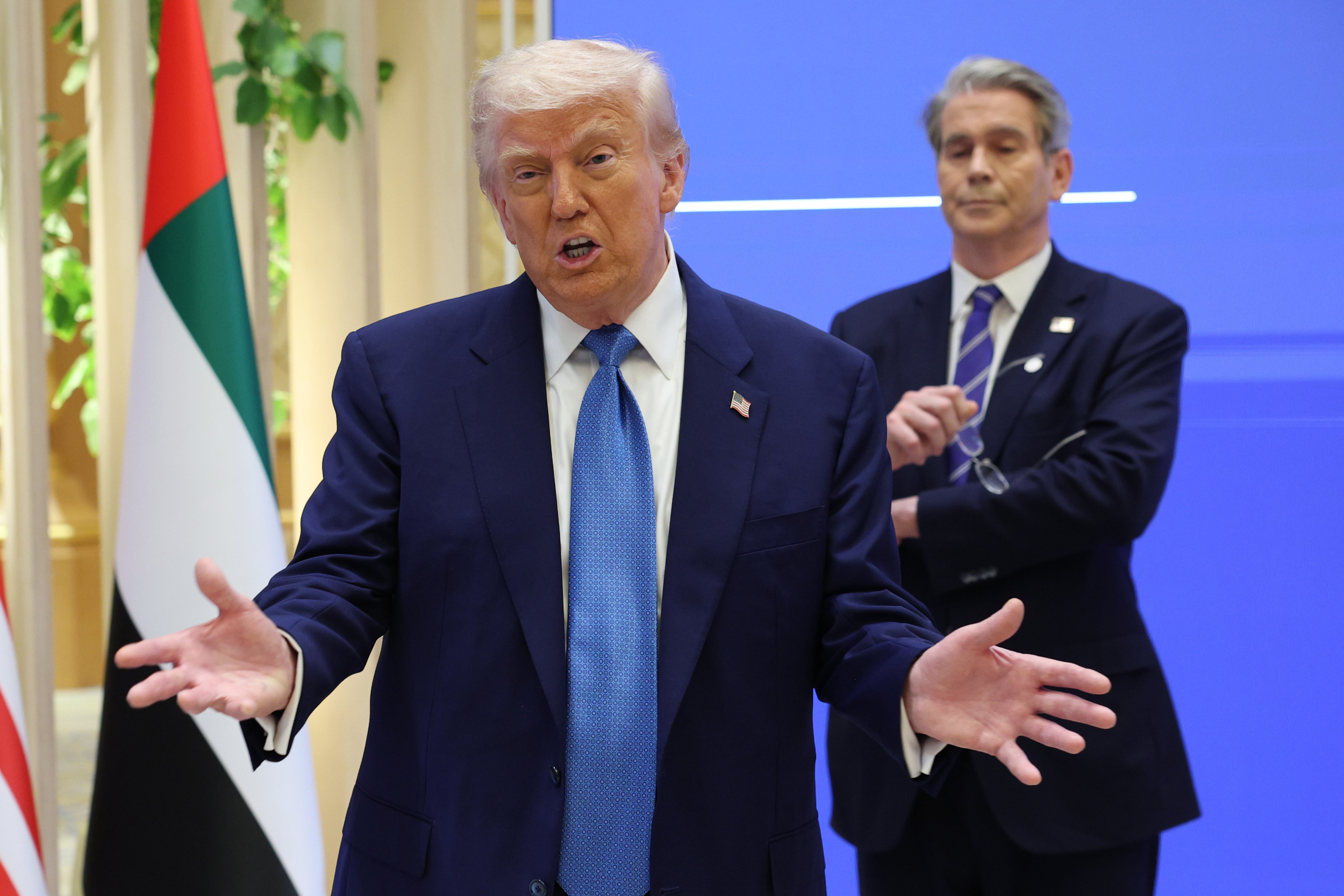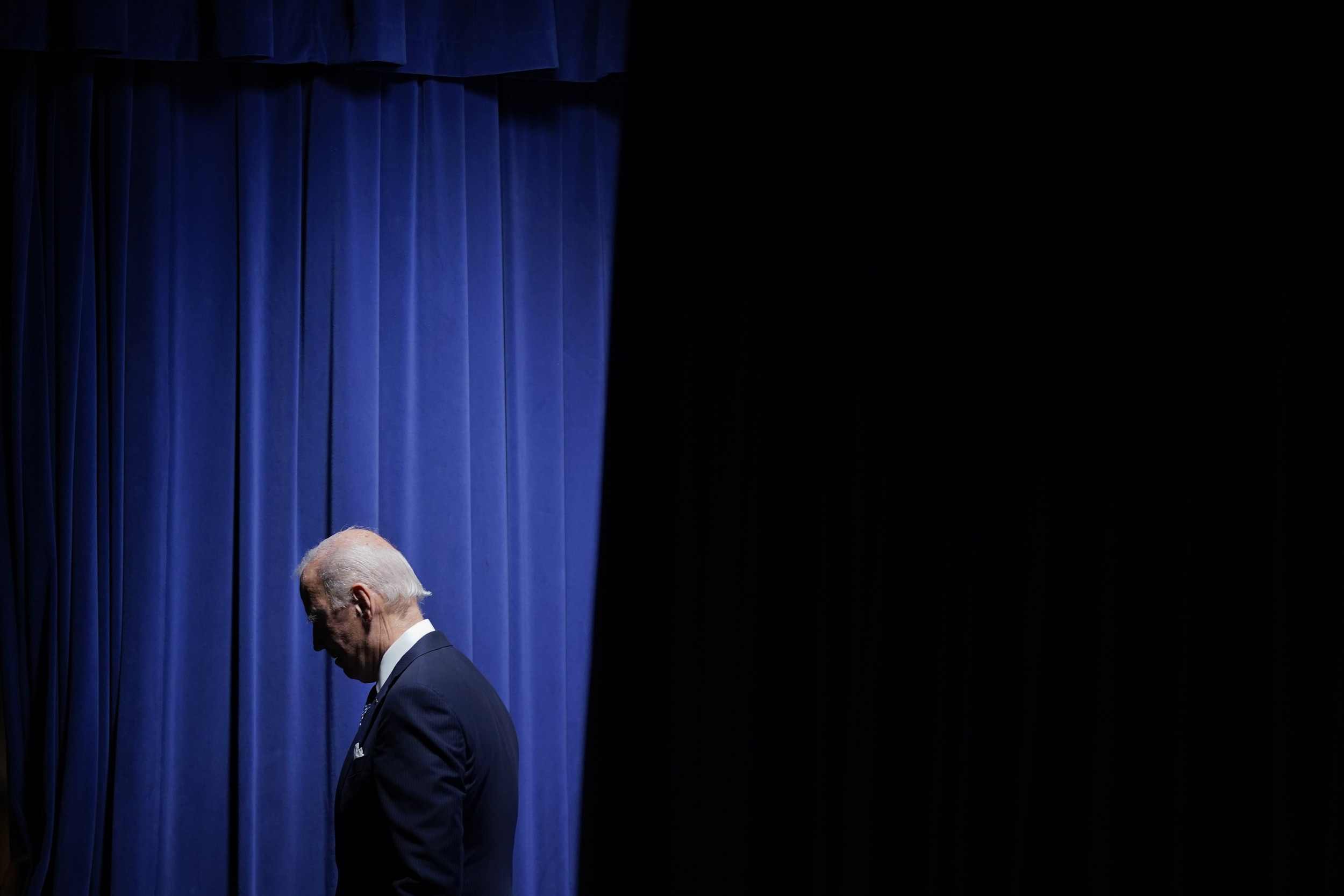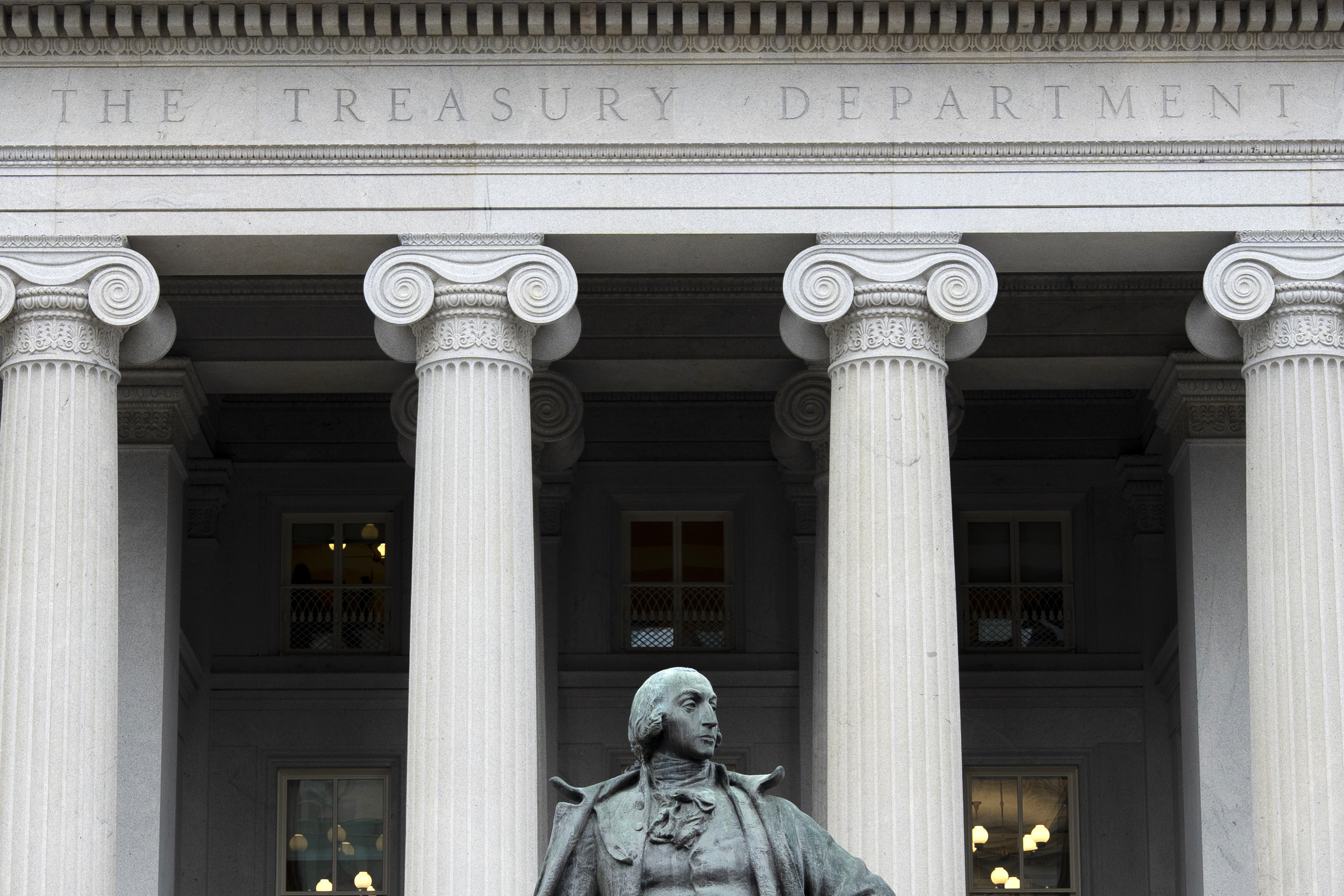🎙️ Voice is AI-generated. Inconsistencies may occur.
President Donald Trump said on Friday that he encouraged Israeli Prime Minister Benjamin Netanyahu to allow humanitarian aid to enter Gaza as his nation's war with Hamas, a Palestinian militant group, remains ongoing.
Newsweek reached out to Netanyahu's office for comment via email on Friday.
Why It Matters
On March 2, Israel stopped all aid and other supplies heading into Gaza, with Netanyahu warning Hamas at the time that "additional consequences" could come to fruition.
Two days prior to the halt of food, medicine and other supplies, the first stage of a six-week ceasefire deal helped brokered by Trump administration officials expired. Under that arrangement, Hamas released 25 Israeli hostages held in Gaza while Israel returned close to 2,000 Palestinians from Israeli custody.
Hamas' unprecedented October 7, 2023, attack on Israel has sparked more than 18 months of war in Gaza. More than 1,200 people died and 251 more were taken as hostages into the enclave, before Israel launched an intensive aerial and ground campaign against Hamas in the densely-populated strip.
The war has devastated the territory, often displacing Gaza's nearly 2 million inhabitants several times and killing more than 51,200 people, according to Hamas-run authorities. This number does not differentiate between combatants and civilians.
What To Know
Trump told reporters on Friday aboard Air Force One that he had spoken with Netanyahu and Gaza "came up" including humanitarian aid.
"I said, 'We've got to be good to Gaza...Those people are suffering,'" the president said, according to Reuters.
Trump also replied in the affirmative when asked if that included opening access points in the region to provide said aid.
"We're going to take care of that," Trump said. "There's a very big need for medicine, food and medicine, and we're taking care of it."
Netanyahu "felt well about it," the president added.
In the past, Israel has blamed aid agencies in Gaza for what it described as ineffectively distributing resources, and said militants have stolen supplies from aid trucks.
Shaiel Ben-ephraim, an Israeli journalist and self-described Zionist who supports a two-state solution, told Newsweek on Friday that he believes Netanyahu and Israel will heed Trump's advice—that is assuming that Trump means what he's saying.
"There is always a chance with [Trump] that there will be no follow-through," Ben-ephraim said. "It could just be an offhand comment. But if Trump puts actual pressure on Netanyahu with even a hint of possible consequences, then Bibi will cave."
He continued: "He is beholden to the president for domestic legitimacy, since his base loves Trump, and cannot fight the president the way he would a Democrat, since he will get no support in Congress. In addition, starving the population in Gaza has consequences with the ICC [International Criminal Court] and the ICJ [International Court of Justice], as well as relations with the EU [European Union]. So, my guess is, despite significant opposition in his government, Netanyahu will let in enough aid to alleviate the immediate crisis."
Also on Friday, the United Nations World Food Programme (WFP) announced it had depleted all of its food stocks for families in Gaza, Reuters reported.
The last remaining stocks included hot meals delivered to kitchens in the Gaza Strip, the Programme said, with anticipation that the kitchens would fully run out of food "in the coming days."
The consistent sustenance provided to people in Gaza is acknowledged to have reached just half the region's population and with only 25 percent of daily food needs but offered "a critical lifeline" for survival.
WFP added that all 25 supported bakeries to distribute affordable bread in Gaza closed on March 31 as wheat flour and cooking fuel ran out. The same week, WFP food parcels were exhausted. They are also "deeply concerned" about the severe lack of safe water and fuel for cooking, officials told Newsweek.
"More than 116,000 metric tons of food assistance—enough to feed one million people for up to four months—is positioned at aid corridors and is ready to be brought into Gaza by WFP and food security partners as soon as borders reopen," a WFP spokesperson told Newsweek. "The situation inside the Gaza Strip has once again reached a breaking point: people are running out of ways to cope, and the fragile gains made during the short ceasefire have unraveled. Without urgent action to open borders for aid and trade to enter, WFP's critical assistance may be forced to end."
Following the March 2 halt by Israel, multiple Arab nations including Saudi Arabia, Qatar, Egypt and Jordan condemned Israel and Netanyahu.
Officials from Qatar, whose foreign ministry helped broker the now expired ceasefire deal, at the time called Israel's action "a clear violation of the ceasefire agreement, international humanitarian law, the Fourth Geneva Convention, and all religious principle."

What People Are Saying
In response to the WFP saying it depleted all of its food stocks, journalist Mehdi Hasan wrote on X, formerly Twitter, on Friday: "Horrific. And all with Trump's blessing and approval. I'm old enough to remember when some people on this hellsite were telling me how Trump would be less worse on Gaza than Biden/Harris."
President Donald Trump wrote on Truth Social on April 22: "I've just spoken to Prime Minister of Israel, Bibi @Netanyahu, relative to numerous subjects including Trade, Iran, etc. The call went very well—We are on the same side of every issue."
Israel's Foreign Ministry spokesperson Oren Marmorstein wrote in an X, formerly Twitter, post on March 2: "Massive amounts of goods have already been delivered to the Gaza Strip, and there is no shortage of essential products in the Strip. The quantities of goods are so large that they are expected to last for at least several more months...The goods transferred to Gaza have become the number one source of income for Hamas. The goods have been exploited by Hamas for the reconstruction of its terror infrastructure – Hamas is now running a billion-dollar aid industry that is being used for terrorist purposes."
Basem Naim, a spokesperson for Hamas and senior political figure in the militant group, previously told Newsweek that "cutting the aid and closing the borders is a war crime in itself," saying that Netanyahu "has to be punished for that."
What Happens Next?
Israel has provided no indication that they will heed Trump's recommendation and allow more aid to enter Gaza.
Update 4/28/25, 9:58 a.m. ET: This story was updated with comment from the World Food Programme.
fairness meter
About the writer
Nick Mordowanec is a Newsweek investigative reporter based in Michigan. His focus includes U.S. and international politics and policies, immigration, ... Read more




